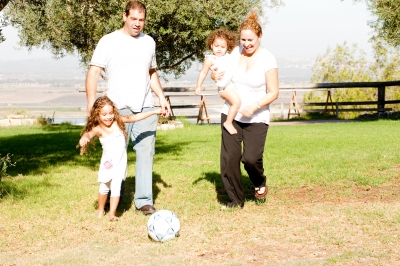Summer is heating up, with July proving to be just as warm as expected! And although summer often translates into time spent outdoors soaking up vitamin D and having fun, it also means we have to pay special attention to our health. Women, in particular, can be prone to sunlight-related health conditions, notably dehydration and overheating/fainting. In an effort to help our patients protect themselves and their families, we’ve highlighted some of the top summertime health tips for women.
Hydrate
Hydration is a key to staying healthy and feeling well all year round, but it’s especially important during the summer months. The fact is, we perspire a lot more during the summer, so it’s easier to become dehydrated and feel faint. If you’re someone who has trouble drinking enough water each day even during the cooler months, it’s critical that you make an active effort to stay hydrated during the summer. Water would be the obvious and ideal choice, but you do have other options to stay hydrated in the summer heat.
- If you’re tired of water, try some of the low calorie flavorings. Just remember not to become entirely reliant on these – water is still your best and most beneficial option.
- Don’t forget about fruit! Fruit is often an excellent source of fluids, in addition to being loaded with beneficial nutrients.
- What color is your urine? If your urine is pale or transparent yellow, you are likely well hydrated. However, if your urine is a more opaque or bright/deep yellow, your body isn’t getting nearly enough water.
Pay Attention to Your Body
Many women regularly ignore that nagging feeling that they just don’t feel quite right, that they feel a little “off.” However, this is an especially unhealthy instinct in the summertime. If you start to feel faint, dizzy, nauseous or very fatigued, especially suddenly, you could be experiencing illness related to excess heat. Heat exhaustion and heat stroke occur when the body is struggling to keep itself cool. If you have the symptoms listed above plus a headache, fast heartbeat, and/or a general feeling of weakness, it is imperative to get out of the heat as quickly as possible. Start to hydrate immediately, but do it slowly so as not to bring on or worsen nausea. Take your time cooling down in air conditioning and remove any tight or warm clothing and. If you feel up to it, take a cool bath or shower. Take your time – relax, cool down. Don’t try to rush yourself into feeling better.
Luckily, it’s easy to avoid these common summertime conditions of dehydration and heat exhaustion. Pay attention to how you feel. Note how much water you drink each day. Know how much time you spend in the sun unprotected. We encourage patients to contact PGOMG directly with their questions and concerns about summertime safety.


